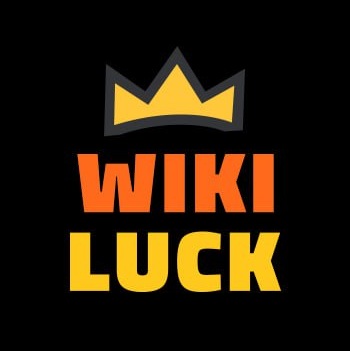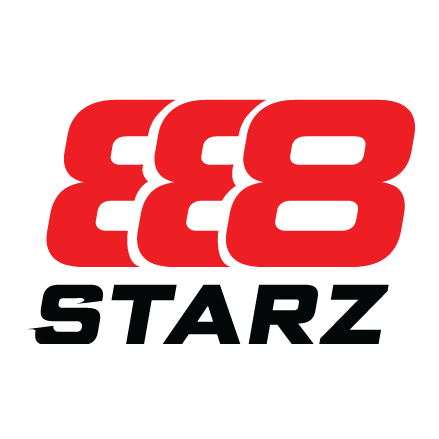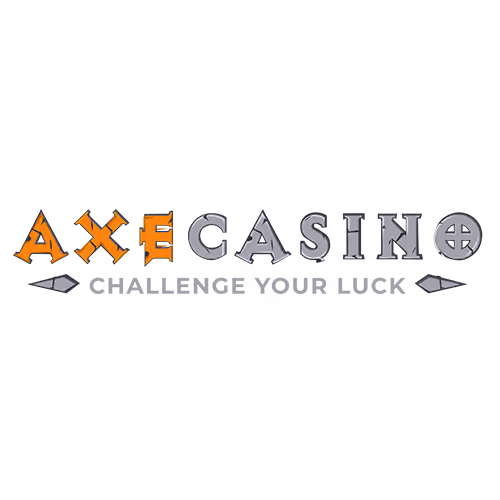Crypto payments at online casinos used to feel like sci-fi stuff – confusing wallet addresses, blockchain confirmations, gas fees that made no sense. But after testing Ethereum Casino deposits and withdrawals for years, I can tell you it’s actually simpler than most traditional banking methods once you get past initial setup. Below, I’ll explain how ETH payments work at Canadian casinos, which sites don’t screw you on fees, and why Ethereum often beats Bitcoin for gambling transactions.
Ranking the Best Ethereum Casinos
When I test Ethereum casinos, I’m checking three things: do deposits actually process as fast as advertised (15 seconds to a few minutes typical), are withdrawal fees reasonable or hidden, and does the casino accept Layer 2 networks like Arbitrum or Polygon for cheaper gas costs. Some sites claim “instant ETH deposits!” then make you wait 30 minutes for network confirmations.
These picks have verified ETH support across mainnet and L2 networks where possible, tested actual deposit/withdrawal speeds multiple times, and confirmed gas fees match what’s advertised. If processing takes way longer than blockchain confirmation times or fees are padded with hidden charges, it’s not here.
How I Pick Casinos That Handle Crypto Properly
Testing Ethereum casinos means setting up wallets, funding them, making deposits at various amounts, playing through, and withdrawing – all while tracking blockchain confirmations, gas fees, and processing delays. Can’t fake this with demo accounts.
Process:
- Philosophy: Crypto payments should be faster and cheaper than traditional methods. If they’re not, the casino’s implementation sucks.
- Testing duration: 30-45 days minimum. Multiple ETH deposits/withdrawals across different times to test network congestion handling.
- Registration/KYC: Check if crypto deposits trigger same verification as fiat or if there’s enhanced scrutiny (some jurisdictions require it).
- Deposits & withdrawals: Core focus. Time blockchain confirmations vs when funds actually appear in casino balance. Track gas fees – are they passed to players or absorbed by casino?
- Bonuses: Verify if ETH deposits qualify for same bonuses as fiat or if crypto is excluded (common with some operators).
- Games: Check if ETH balance works across all games or if certain providers don’t support crypto funding.
- UX: Is the crypto cashier clear about wallet addresses, networks supported (mainnet vs L2), minimum deposits? Confusing interfaces = mistakes = lost funds.
- Security: Verify wallet addresses are displayed correctly, no clipboard hijacking, proper SSL on cashier pages.
- Support: Test if they can help with stuck transactions, wrong network sends, gas fee questions. Crypto knowledge varies wildly among support teams.
- Who reviews: Me, my team. Real ETH transactions, real network fees, real blockchain tracking, real withdrawal testing.
Pros and Cons of Using Ethereum at Casinos
ETH payments have specific advantages and drawbacks versus traditional methods. Here’s the honest breakdown:
| Pros | Cons |
|---|---|
| Fast deposits (15 seconds to few minutes for confirmations) | Gas fees vary wildly – cheap during low traffic, expensive during peaks |
| Near-instant withdrawals (blockchain-limited, not casino-limited) | Requires crypto wallet setup and understanding blockchain basics |
| Enhanced privacy – no bank statements showing gambling transactions | ETH price volatility means your $200 deposit might be worth $180 or $220 tomorrow |
| Lower fees than credit cards (no cash advance charges) | Some Canadian banks restrict crypto exchange funding |
| Access to offshore casinos that don’t accept Canadian fiat | Mistakes (wrong address, wrong network) are irreversible – no chargebacks |
| Layer 2 networks offer even faster, cheaper transactions | Not accepted at provincially-regulated Ontario casinos (AGCO sites) |
| Smart contract functionality enables provably fair gaming | Learning curve intimidates newcomers – wallets, addresses, confirmations confusing |
| No middleman can block or reverse transactions | Tax implications – crypto gambling winnings may trigger reporting requirements |
Honestly? For players comfortable with crypto, Ethereum crushes traditional banking on speed and costs. For newcomers, the setup friction and mistake risk make it intimidating. But once you’ve done it twice, it’s stupid easy.

Deposits and Withdrawals: How It Actually Works
Depositing ETH starts with having a compatible wallet – MetaMask, Trust Wallet, Coinbase Wallet, whatever. Most are free apps you install on phone or browser extension. Buy ETH from an exchange like Coinbase or Binance (requires KYC there, ironically), transfer to your wallet, then you’re ready. Casino cashier shows an Ethereum deposit address (long string of characters starting with “0x”), you paste that into your wallet, enter amount, confirm transaction paying gas fees, wait 15 seconds to few minutes for blockchain confirmations, boom – funds appear in casino balance.
Kicker though: network matters. Ethereum mainnet works everywhere but gas fees can hit $5-50 during busy times (like when some NFT project launches and clogs the network). Layer 2 networks like Arbitrum, Optimism, or Polygon cost pennies but not all casinos support them yet. Always verify which network the casino accepts before sending – send mainnet ETH to an Arbitrum-only address and your funds vanish into the void permanently. No joke, I’ve seen players lose hundreds this way.
Withdrawals reverse the process: casino cashier, select ETH withdrawal, enter your wallet address, confirm. Casino processes it (instant to few hours depending on their internal checks), then blockchain confirmation happens (another 15 seconds to few minutes), funds hit your wallet. Total time usually under an hour versus 3-5 business days for Interac or bank transfers. That speed is why crypto players tolerate the technical complexity.
Gas fees are the wildcard. They’re paid to Ethereum network validators, not the casino, but casinos handle them differently. Some absorb deposit fees (you deposit $100 ETH, full $100 appears in balance), others pass them through (you deposit $100, $97 appears after $3 gas fee). Withdrawals usually deduct gas from your payout. During 2021’s peak congestion, I paid $60 gas for a $200 withdrawal – absolutely brutal. These days, with Ethereum upgrades and better infrastructure, fees typically run $1-10 for normal transactions, $0.10-1 on L2 networks.
Pro tip from expensive experience: test with small amounts first ($20-50). Verify the deposit works, try a small withdrawal, confirm everything processes correctly before moving serious money. Blockchain mistakes are permanent – no calling your bank to reverse a typo.
Limits, Rules, and the Fine Print That Matters
Every Ethereum casino has specific requirements and restrictions. Here’s what you need to verify before depositing:
- Minimum Deposit: Usually $10-20 worth of ETH, though some sites go as low as $5. Check if it’s denominated in ETH (0.01 ETH minimum) or fiat equivalent ($10 minimum).
- Maximum Deposit: Often capped at $10,000-$50,000 per transaction for AML compliance. High rollers might need multiple deposits or direct negotiation with VIP teams.
- Minimum Withdrawal: Typically $20-50 to cover gas fees economically. Requesting $10 withdrawal that costs $5 in gas is mathematically dumb.
- Maximum Withdrawal: Varies wildly – $5,000 to $100,000+ per transaction depending on license jurisdiction and operator policies.
- Network Confirmations Required: Most casinos require 12-30 Ethereum network confirmations before crediting deposits (about 3-7 minutes). This protects against blockchain reorganizations.
- Supported Networks: Verify if casino accepts only Ethereum mainnet or also L2 networks (Arbitrum, Optimism, Polygon, Base). Sending to wrong network = lost funds.
- Wallet Address Validity: Double-check addresses before sending. One wrong character sends funds to oblivion permanently. Many wallets have QR codes – use those to avoid typos.
- KYC Requirements: Some casinos allow crypto deposits without verification but require KYC before withdrawals over certain amounts ($2,000+ common threshold).
- Bonus Eligibility: Verify if ETH deposits qualify for promotions. Some casinos exclude crypto from welcome bonuses (annoying but legal).
- Conversion Rates: Check if casino converts ETH to fiat internally for gameplay or keeps native crypto balance. Conversion rates and timing can impact value.
- Gas Fee Responsibility: Clarify who pays – you or casino. This should be stated clearly in banking T&Cs but often isn’t.
- Prohibited Jurisdictions: Ontario’s AGCO-regulated casinos don’t accept crypto. Offshore sites do, but verify your province isn’t restricted.
- Transaction Limits: Some impose daily/weekly caps separate from per-transaction limits – might allow $10K per transaction but only $30K weekly total.
Honestly, these vary so much between casinos that verifying before depositing is non-negotiable. Assumptions here cost real money.
Why Layer 2 Networks Are Game-Changers (When Supported)
Look, Ethereum mainnet works fine but gas fees during busy times are stupid expensive. That’s where Layer 2 solutions like Arbitrum, Optimism, Polygon, and Base come in – they process transactions off the main Ethereum chain, then batch-post results back. For players, this means transactions cost $0.10-1 instead of $5-50, and confirmations are near-instant.
Problem is, not many casinos support L2 yet. The ones that do usually highlight it prominently because it’s a competitive advantage. When testing, I always check L2 support first – if available, I use it exclusively because paying $30 gas to withdraw $500 is offensive. On Arbitrum? Same withdrawal costs $0.50. No-brainer.
Kicker: make absolutely sure casino supports the specific L2 network before sending. Ethereum mainnet, Arbitrum, Optimism, Polygon – they’re all separate networks despite using ETH. Send Polygon ETH to a mainnet-only casino address? Gone forever. Casinos that support multiple networks usually have dropdown menus in cashier – use them carefully.
About Ethereum as a Payment System
Ethereum launched in 2015 as a blockchain platform enabling smart contracts and decentralized applications. Unlike Bitcoin (just a currency), Ethereum’s programmability made it ideal for complex transactions like casino gaming, DeFi, and NFTs. Here’s what matters for gambling:
| Category | Details |
|---|---|
| Launch Date | July 30, 2015 |
| Founder | Vitalik Buterin and co-founders |
| Network Type | Proof-of-Stake (since September 2022 “Merge”) |
| Average Transaction Time | 12-15 seconds per block, 3-7 minutes for 12+ confirmations |
| Transaction Fees (Gas) | $1-10 mainnet (varies with congestion), $0.10-1 on L2 networks |
| Supply | No hard cap (inflationary but with burn mechanisms) |
| Market Position | #2 cryptocurrency by market cap globally |
| Smart Contract Support | Yes – enables provably fair gaming and instant payouts |
| Accepted Widely | Most crypto casinos support ETH alongside Bitcoin |
Ethereum’s advantage over Bitcoin for casinos is speed – BTC confirmations take 10+ minutes per block, ETH takes 12 seconds. For deposits/withdrawals, that’s meaningful. Also, Ethereum’s smart contract capabilities enable provably fair games where players can verify randomness cryptographically. Not all casinos use this feature, but when they do, it’s gold.
Useful Links for Ethereum Casino Players
If you’re new to crypto gambling or want to verify info independently, these resources help:
Ethereum Resources:
- Ethereum.org – Official Ethereum Foundation site, explains blockchain, wallets, how network works
- Etherscan – Blockchain explorer to track your transactions, verify confirmations, check gas fees
- MetaMask – Popular browser wallet for Ethereum, easy setup for beginners
- Coinbase – Major exchange to buy ETH with Canadian dollars, includes wallet
Canadian Gambling Regulatory Bodies:
- Alcohol and Gaming Commission of Ontario (AGCO) – Ontario’s regulator (doesn’t permit crypto at licensed sites currently)
- iGaming Ontario – Ontario regulated market info
- Responsible Gambling Council – Canadian org for problem gambling support
Problem Gambling Resources:
- Gambling Therapy Canada – Free support for gambling issues
- ConnexOntario – Mental health and addiction services in Ontario
Verify casino licenses through their stated regulators – Curaçao, Malta Gaming Authority, etc. If license claims don’t check out, don’t deposit regardless of payment method.
When Traditional Payment Methods Actually Beat Crypto (Yeah, Really)
Honestly, as much as I use Ethereum at casinos, there are times when iDebit Casino or Amex Casino options make more sense. iDebit connects directly to Canadian bank accounts with Interac-like simplicity but broader casino acceptance – no wallet setup, no gas fees, no blockchain learning curve. Just log into your bank through their interface, transfer funds, done. For casual players making occasional $50-100 deposits, the friction of buying ETH, transferring to wallet, worrying about gas fees… it’s overkill.
And Amex? Look, most online casinos don’t accept it (Visa/Mastercard dominate), but the ones that do often process deposits instantly with zero fees and offer better fraud protection than crypto’s irreversible transactions. Yeah, your bank statement shows the gambling charge (privacy concern for some), but if the casino turns out to be sketchy, you can dispute with Amex and they actually side with cardholders sometimes. Try that after sending ETH to a scam casino – blockchain doesn’t care about your complaint.
So when does crypto win? High-volume players making frequent large transactions, privacy-focused users avoiding bank records, players accessing offshore sites that don’t support Canadian banking, and anyone who’s already comfortable with crypto for other uses. For everyone else, honestly? The traditional methods work fine and cause way less headache if something goes wrong.
















